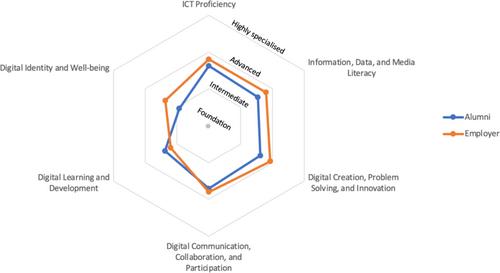Are Graduates Digitally Unprepared?—A Digital Technology Gap Analysis From Alumni and Employer's Perspectives
Abstract
Background
The digital literacy landscape has undergone significant changes over the last 5 years, from the impact of the COVID-19 pandemic to the emergence of Artificial Intelligence (AI) technologies. The COVID-19 pandemic hastened the necessity for advanced digital skills for remote work and online collaboration, while the current AI era demands proficiency in new technologies and an understanding of their ethical implications. The digital deficit and the need to align university education with industry demands, especially in this era of fast-changing technology and the advancement of generative AI, are still subjects of ongoing debate and are the motivation for this paper. This study contributes to the ongoing discourse on digital literacy by providing actionable insights for enhancing digital competencies in higher education and bridging the digital gap.
Objectives
This study examines the digital literacy gaps among university graduates from the alumni and employers' perspectives. The study aims to understand the digital gap and how employers' and alumni expectations regarding employees' digital skills and literacy have evolved during COVID-19 and the current AI era.
Methods
The data were gathered through interviews with alumni and employers. Forty interviews were conducted to evaluate graduates' current readiness.
Results and Conclusions
Our data reveals digital deficiencies, particularly in areas such as digital identity and well-being, highlighting the need for targeted educational interventions. The study proposes strengthening strategies such as work-integrated learning and lifelong learning so universities can better equip graduates to meet the evolving demands of the digital economy.


 求助内容:
求助内容: 应助结果提醒方式:
应助结果提醒方式:


